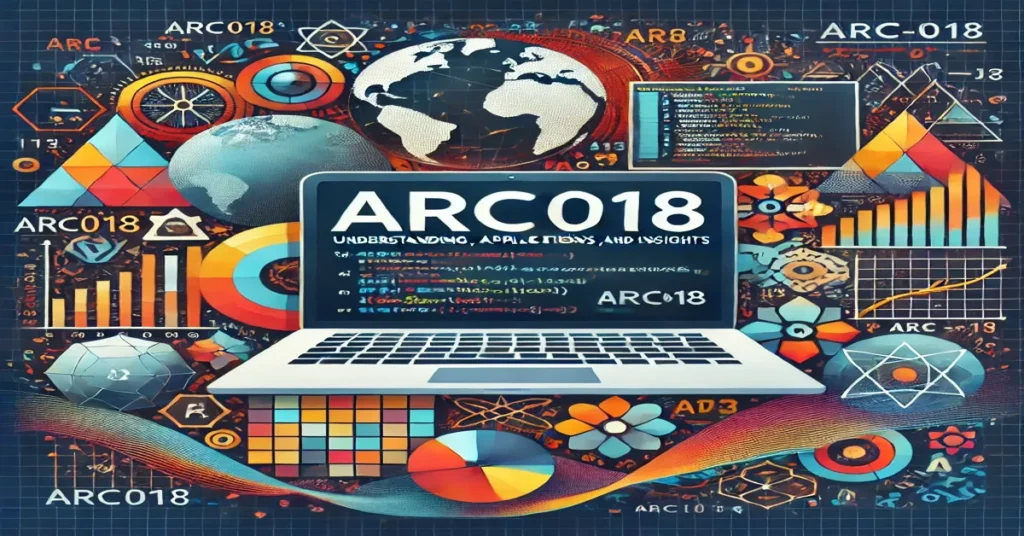ARC018 is an identifier often associated with programming contests, problem-solving, or specific domains within competitive programming. Typically linked to platforms like AtCoder, ARC018 is a part of the AtCoder Regular Contest series—a programming competition aimed at testing problem-solving skills, algorithmic thinking, and coding efficiency.
This article explores ARC018 in detail, focusing on its relevance in programming contests, its structure, the types of challenges it presents, and its implications for those involved in competitive programming. Whether you are a seasoned programmer or a beginner looking to enhance your skills, understanding the nuances of ARC018 will offer valuable insights.
The Significance of ARC018 in Programming Contests
1. What is AtCoder and ARC018?
AtCoder is a prominent online competitive programming platform from Japan, known for its rigorous contests that attract global participation. Among its contest series, the AtCoder Regular Contest (ARC) is designed for programmers seeking moderately challenging problems. ARC018 is a specific iteration in this series, each contest typically consisting of 4 to 6 problems of varying difficulty.
2. Why Participate in ARC018?
Participating in contests like ARC018 provides several benefits:
- Skill Enhancement: It pushes participants to think critically and solve problems under time constraints.
- Career Advancement: Excelling in such contests boosts resumes, showcasing algorithmic expertise.
- Global Benchmarking: Competitors can gauge their skills against international participants.
- Recognition: High scorers often gain recognition in the competitive programming community.
3. Typical Format of ARC018
Each ARC contest, including ARC018, features:
- Problem Set: Ranging from beginner-friendly to advanced.
- Time Limit: Usually 100-120 minutes to solve all problems.
- Scoring System: Points are awarded based on the difficulty and correctness of solutions.
- Language Flexibility: Solutions can be coded in languages like C++, Python, and Java.
Breakdown of ARC018 Challenges
1. Problem Categories in ARC018
The problems in ARC018 are typically divided into:
- Easy Problems: Designed for beginners to warm up. These test basic knowledge of programming constructs and algorithms.
- Intermediate Problems: Require a solid understanding of algorithms, data structures, and problem-solving techniques.
- Hard Problems: Aim to challenge even seasoned programmers, often involving optimization, dynamic programming, or advanced algorithms.
2. Example Challenges
a. Basic Problem: Calculations and Implementations
Example: Given two integers aaa and bbb, compute their Greatest Common Divisor (GCD).
Solution Approach: Use the Euclidean algorithm.
pythonCopy codedef gcd(a, b):
while b:
a, b = b, a % b
return a
# Example usage
print(gcd(24, 36)) # Output: 12
b. Intermediate Problem: Searching and Sorting
Example: Find the smallest missing positive integer from a list.
Solution Approach: Use sorting or a hash table.
pythonCopy codedef smallest_missing_positive(nums):
nums_set = set(nums)
smallest = 1
while smallest in nums_set:
smallest += 1
return smallest
# Example usage
print(smallest_missing_positive([3, 4, -1, 1])) # Output: 2
c. Advanced Problem: Optimization
Example: Given a set of points in a 2D plane, find the smallest circle covering all points.
Solution Approach: Use computational geometry techniques, such as Welzl’s algorithm.
Techniques and Strategies for Success in ARC018
1. Algorithmic Foundations
Understanding algorithms is key to solving ARC018’s problems effectively. Focus on mastering:
- Sorting algorithms: QuickSort, MergeSort
- Searching techniques: Binary Search
- Graph algorithms: BFS, DFS, Dijkstra’s algorithm
- Optimization methods: Dynamic Programming, Greedy algorithms
2. Data Structures Mastery
Strong knowledge of data structures is crucial. Commonly used ones include:
- Arrays and Linked Lists
- Stacks and Queues
- Trees and Graphs
- Heaps and Hash Tables
3. Time Management
Time constraints in ARC018’s demand strategic planning:
- Read All Problems: Allocate time based on problem difficulty.
- Prioritize: Solve easy problems first to secure points quickly.
- Avoid Overthinking: If stuck, move to another problem.
4. Practice Regularly
Consistent practice on platforms like AtCoder, Codeforces, or LeetCode improves speed and accuracy.
Analysis of ARC018 Performance Metrics
1. Participant Distribution
Data from ARC018’s contests show a diverse participant base, from beginners to experts. Performance varies by:
- Experience Level
- Familiarity with AtCoder’s format
- Problem-solving approach
2. Scoring Trends
High scorers in ARC018’s typically:
- Solve all easy problems correctly.
- Partially solve intermediate and advanced problems.
- Use optimized algorithms to minimize runtime errors.
3. Common Pitfalls
Participants often:
- Misinterpret problem statements.
- Overlook edge cases in their solutions.
- Fail to test code for large inputs, leading to runtime errors.
Lessons Learned from ARC018
1. Importance of Problem Analysis
Understanding problem constraints and edge cases is critical. For example:
- Avoid brute force solutions for large datasets.
- Consider special scenarios (e.g., empty inputs, negative numbers).
2. Debugging and Testing
Thorough testing helps identify and fix errors. Key strategies include:
- Writing test cases for edge scenarios.
- Using debugging tools or print statements.
3. Collaborative Learning
Participating in discussions or reading editorials for ARC018’s problems enhances understanding. Insights from others often reveal alternative solutions.
Resources for ARC018 Preparation
- Books
- Introduction to Algorithms by Cormen et al.
- Competitive Programming by Halim and Halim
- Online Platforms
- AtCoder (Official ARC contests)
- HackerRank, Codeforces, and LeetCode (for practice)
- Video Tutorials
- YouTube channels dedicated to competitive programming
- MOOCs on algorithms and data structures
Conclusion
ARC018 exemplifies the rigor and excitement of competitive programming. It challenges participants to apply their programming knowledge in creative and efficient ways. Whether you aim to boost your algorithmic skills or achieve global recognition, contests like ARC018 provide a valuable platform.
Success in ARC018’s lies in consistent practice, strategic planning, and a deep understanding of algorithms and data structures. By leveraging the resources and strategies outlined here, you can excel in ARC018’s and beyond.
FAQs
1. What is ARC018?
ARC018 is a specific contest in the AtCoder Regular Contest series, featuring algorithmic challenges designed for competitive programmers.
2. Who can participate in ARC018?
Anyone interested in programming and problem-solving can participate, regardless of skill level. The problems range from beginner-friendly to advanced.
3. What programming languages are allowed in ARC018?
AtCoder supports multiple languages, including C++, Python, Java, and Ruby.
4. How can I prepare for ARC018?
Preparation involves mastering algorithms and data structures, practicing on platforms like AtCoder, and solving past ARC problems.
5. What resources are recommended for ARC018?
Books like Introduction to Algorithms, online platforms like Codeforces, and AtCoder’s official archives are excellent resources.
6. Why is ARC018 important for competitive programmers?
ARC018 helps programmers improve their problem-solving skills, benchmark against peers, and gain recognition in the global programming community.







